

2023-06-21 12:32:00 Wed ET
stock market technology data antitrust global macro outlook competition bilateral trade free trade fair trade trade agreement trade surplus trade deficit multilateralism neoliberalism world trade organization regulation public utility compliance economic growth capital global financial cycle gdp output
Michael Sandel (2013)
What money cannot buy: the moral limits of markets
Michael Sandel describes what money cannot buy. With respect to the moral limits of the free market ideology of capitalism, Sandel first critiques various traditions of thinking about free markets and their achievements in recent decades. Moreover, Sandel advocates that free markets can sometimes change human values, beliefs, and preferences etc in light of modern advances in the economic science. Sandel delves into some alternative non-market mechanisms such as inclusive institutions and cohesive societies for better resource allocation.
Sandel strives to question whether the use of free markets is just and fair for better resource allocation. This endeavor is essentially about right and wrong. In a clever way, Sandel presents several hypothetical examples of difficult cases to challenge our ethical considerations. His main thesis suggests that it may not be universally desirable to permit free market transactions between both sides even with written consent. The thesis focuses on market exchange where one side of the transaction is financial (i.e. this side involves the prevalent market price). Sandel uses a broad range of provocative examples to challenge the economic intuition about whether free markets can often operate in some problematic way. In effect, these examples shed skeptical light on the free market ideology of capitalism in specific contexts.
Many real-life examples cast doubt on the economic claim that free markets seem to always be better than queues at getting goods to people who value these goods most highly. In some cases, standing patiently in line can often be a better indicator of the relative intensity of preferences (rather than the economic willingness to pay). For instance, public health care systems often use long queues for better resource allocation. Sometimes this inconvenience encourages some people with superior social and economic privileges and advantages to pursue alternative market routes toward immediate access to medical treatment. The U.S. public health care system economizes on rare and valuable resources and can target these resources toward the less well off. The social costs seem to manifest in extreme discomfort and even death for some people. The example urges both economists and many other social scientists to reconsider the optimal trade-off between markets and queues.
Sandel discusses the example of a new company, which pays people to stand in line on Capitol Hill on behalf of lobbyists. In effect, this practice degrades Congress by treating legislature as a major source of private gain instead of an instrument of the public good. From a fundamental viewpoint, this practice can heighten the main perception that Congress can be bought by the highest bidder. As a natural result, this practice may inadvertently erode public trust in the government. In light of this questionable practice, many people may choose not to hold public office. The basic outcome would likely be a severe shortage of high-skill politicians and technocrats in the long run.
Anthropologists often criticize the economic importance of gifts. People share gifts for their social significance well beyond the instrumental economic value of market exchange. For instance, many people tend to respond positively to regarding blood donation as an act of civic duty. For this reason, most people would argue against turning human blood into a free market commodity. It would be socially beneficial for the government to create a non-profit organization to allow people to engage in the socially valuable act of blood donation. In this social context, it would be quite inappropriate for corporations to trade human blood as a mercenary product.
Sandel introduces money into several non-market cases in order to change social norms and attitudes. In effect, these changes in social norms and attitudes crowd out moral and civic commitments due to behavioral reasons and concerns. A good illustrative example relates to how parents respond to the introduction of fines for picking up children late by showing up late more often at an Israeli day care center. The fines would not deter the negative behavior or parental procrastination in this particular example. These fines would inadvertently become the prevalent price in most market transactions. Parents might therefore no longer feel guilty for causing the day care staff to be late home because these parents would somehow regard the fines as the price of additional after-hour day care service. When push comes to shove, the basic law of inadvertent consequences counsels caution. In the wider context of pro-social behavior, Sandel thus argues that there would be better social interactions when these interactions involve no price or any other form of economic incentive.
Sandel further discusses several other examples of goods that money cannot buy. Paying someone to be our friend is not the same as friendship. Moreover, there is a big difference between buying an Oscar statue or a Super Bowl ring in an auction and winning one with our team members. Becoming part of the academic circle of Nobel Laureates and their co-authors has great value because money cannot buy this social status. In this latter case, the intrinsic value of social status is the broader expression of esteem. All of these examples are real-life cases where the value of the good itself depends on acquiring it in a non-market context. In this context, real merits matter much more than economic incentives and monetary rewards.
The U.S. has a unique market norm in core health care provision. By comparison, most other countries adopt the non-market allocation of core health care services through public finance. The recent rampant corona virus crisis of 2020-2021 shows this substantive discrepancy worldwide. Most non-U.S. countries attempt to reduce the domain of free markets in health care to a much greater extent due to the social perceptions of inequality in access to health care. Many people would regard such inequality in access to health care to be unacceptably large in America. This health care inequality issue complements the recent U.S. public policy debates on basic income, wealth taxation, and capital income accumulation etc.
Many market choices are not free choices if some people are desperately poor or lack the ability to bargain on fair terms. On the basis of economic equality, this key objection poses a conceptual challenge to free market outcomes. Sometimes core inequality in market choices reflects inequality in the purchasing power of income and wealth. The upper echelon can transmit their social and economic advantages and privileges from one generation to the future generations via inheritance, health care, education, corporate control, stock ownership, and so on. Unfair and unequal initial conditions can often manifest in many ways that free market choices play out in due course. Sometimes, free market choices are not mere mechanisms. These free market choices embody and even crowd out non-market social norms, values, and preferences that special interest groups consider in specific contexts. Sandel therefore argues that money cannot buy these gradual trends and changes in non-market social norms, beliefs, values, tastes, and constituent interests.
In his classic book The Wealth of Nations, Adam Smith indicates that it is not from the benevolence of the butcher, the brewer, or the baker that we expect our dinner, but from their regard to their own self-interest. We further address ourselves not to their humanity but to their self-love. We never talk to them of our own necessities, but of their advantages. The Wealth of Nations reaches its apotheosis in the work of general equilibrium economists such as Kenneth Arrow and Gerard Debreu who derive the optimal first-order conditions for market exchange and production in the competitive Pareto efficient allocation of resources. Moreover, the Coase theorem by Ronald Coase demonstrates the economic efficiency of resource allocation in the absence of transaction costs, public goods, externalities, and so on. The Coase theorem states that if trade is possible with sufficiently low transaction costs, most economic actors can achieve the Pareto efficient market exchange regardless of the initial allocation of property rights. With respect to this allocative efficiency, the free market ideology of capitalism may sometimes inadvertently suffer from capital market imperfections and information asymmetries such as adverse selection and moral hazard by George Akerlof, Michael Spence, and Joseph Stiglitz. In addition, the economic pro-market profession faces some other challenges such as natural monopolies and distributional concerns.
Sandel presents many objections as open critiques of the allocative efficiency view. In particular, Sandel argues that many free market transactions often affect human motives, behaviors, norms, and preferences in a specific way that cannot properly price in these market transactions. From Emmanuel Saez to Thomas Piketty, many economists have long understood that the free market capitalist economy cannot guarantee equitable outcomes. However, the central focus has been on how these social and economic outcomes arise due to inequality in the nationwide distribution of natural resources, capital investments, talents, and skills etc. In many occasions, societal judgment motivates people to seek economic equality in public health care, education, infrastructure, and access to civil and criminal justice. In the latter case, for instance, although people should access legal counsel ahead of lawsuits, some people think it is socially unacceptable for the richest elites to buy the best lawyers even if these people would not object to the reality that the richest elites live in the biggest houses with many luxury goods and other bright shiny objects etc.
There is no reason for people to consider that non-market mechanisms turn out to be more egalitarian than the market allocation of resources, goods, and services. For instance, the pervasive use of social networks for people to allocate jobs can often be a salutary reminder of what can happen when people compromise modern free markets. In his new book Society and Economy, Stanford sociology professor Mark Granovetter supports the economic importance of social ties and relations in effective job search for price stability and maximum sustainable employment in the dual mandate. From Milton Friedman to Friedrich Hayek, free markets and choices constitute conscious efforts for most people to justify the modern capitalist system. In response, Sandel provides his prescient counter-arguments that go well beyond concerns about endowment inequality. Sandel specifically questions whether free market transactions constitute free choices in some situations.
The main basis of the free choice argument is that a party to a market transaction consents to an open exchange if and only if the person becomes better off than he or she would be by not trading goods and services. A counterfactual case is labor coercion in the standard principal-agent relation. Under this contract, the employer can use his or her coercive behavior to influence the economic agent who can still trade above the outside option. In this specific context, most economists would not characterize these situations as free choices. In this negative view, not all market transactions constitute free choices in optimal employment contracts. Furthermore, Berkeley behavioral economist George Akerlof considers the role of caste in labor markets. Most members of a social community often choose to punish the outliers who violate the long prevalent social norms and caste rules that collectively restrict occupational choices in most market transactions. Even though a free market may exist, social penalties and punishments may prevent access to this market to leave people with inferior hard labor opportunities. Therefore, the basic observations of individual market transactions may or may not imply that an independent choice is free of broader social constraints. This in-depth analysis constitutes caveats to the basic notion that free market transactions necessarily constitute free choices. Free market transactions cannot imply free choices, and the moral limits of democratic capitalism need no market failures. When push comes to shove, the universal law of inadvertent consequences counsels caution.
Sandel presents his central argument that free markets can sometimes help shape the social norms and preferences of economic agents in some specific situations. Many economic actors tend to portray preferences, norms, beliefs, and values etc quite narrowly with some particular focus on the policy implications of self-interest. Most economic models make no reference to the important role of pervasive social norms, values, and beliefs; whereas, many economic models take into account the recursive economic utility terms, tastes, preferences, and technological advances over time. It is only plausible for political economy scientists to assess on a case-by-case basis whether this simplicity yields prescient economic insights.
In practice, endogenous social norms, beliefs, and values can sometimes generate positive feedback loops due to labor-capital complementarities. Once such positive feedback loops move beyond some specific threshold, the flywheel can accelerate incremental changes first and then exponential reforms later. The former seem to recur on a regular basis, and the latter often tend to emerge all of a sudden. Sandel conveys his concern that free markets can sometimes undermine pro-social values. Social networks can often support traditional societies with respect to this concern. Some economic historians characterize the pre-industrial life as the mutual support network ecosystem before modern democratic capitalism, sustainable governance, and effective rule of law transform the universally acceptable inclusive institutions for the good society.
Sandel offers the common theme that free markets can often displace close social relations. Economic incentives can sometimes enhance the various levels of open market mobility. Bilateral social interactions can help foster mutual support in some informal contract in the game-theoretic context. If economic actors seek to improve their outside options, it may inadvertently be hard for such mutual support to persist in equilibrium. In this social context, economic reciprocity becomes the sustainable norm for both parties to benefit from their mutual support interactions. Sandel thus emphasizes that free markets can only serve people who are willing to pay in dollar terms. Bottom-up populist power structures and social networks would better serve many other people who value social interactions and political connections. In effect, behavioral economists such as George Akerlof and Robert Shiller seek to combine free market incentives with social identity norms, values, beliefs, and preferences for better inclusive institutions in the good society. In the new century, we manage to reclaim global trade, finance, and technology etc for the common good.
Daron Acemoglu and James Robinson empirically show that inclusive institutions help contribute to better national performance in terms of economic growth, health care, life expectancy, and other sustainable development goals. Key cross-country regressions suggest that successful economic development often depends on the broader state capacity for fiscal stimulus, effective rule of law, and political conflict resolution. Acemoglu and Robinson organize an impressive variety of case studies in support of the main thesis that inclusive institutions can cause state choices and decisions in favor of economic growth. At the same time, Acemoglu and Robinson indicate that extractive institutions often enrich dictators, politicians, and other state decision-makers at the expense of economic growth. In economic history, the wise choice between inclusive and extractive institutions often turns out to be the major ingredient for economic growth and prosperity. Acemoglu and Robinson also argue that there is a fair bit of serendipity in the positive selection of effective institutions. For this reason, most countries cannot emulate core public policies and institutions in order to engineer economic growth and prosperity in the long run.
Daron Acemoglu, Simon Johnson, and James Robinson (2001 and 2002) present empirical analysis of the robust nexus between colonialism and subsequent poor social infrastructure (and thus subpar economic growth). In their institutional view, geographic differences between (sub)tropical and temperate areas at the time of colonization have caused Europeans to colonize with both extractive and inclusive institutions. The different strategies of colonization affect subsequent institutional development. For this reason, the chosen establishment of inclusive or extractive institutions serves as a crucial source of global differences in social infrastructure and economic growth nowadays.
Acemoglu, Johnson, and Robinson (2001) empirically emphasize the geographic disease environment. Europeans face extremely high mortality risks in key tropical areas (particularly from malaria and yellow fever), but the average death rates are substantially lower in temperate regions. In the tropical high-disease environments, European colonizers establish extractive states or authoritarian institutions in order to exploit natural resources from these colonies with little settlement and property protection. In the temperate low-disease environments, European colonizers tend to establish inclusive states or settler colonies with democratic rule of law.
Acemoglu, Johnson, and Robinson (2002) focus on the previous level of economic development on the eve of colonization. In key colonies with dense population and greater institutional development, it proves to be more attractive for Europeans to establish extractive states than inclusive states and settler colonies. This particular colonization strategy leads to the great reversal of fortune that the settler colonies with inclusive institutions tend to experience better economic growth and middle-class income stability (in stark contrast to extractive states). This key empirical fact prevails in the economic comparison of North America versus South America.
Sandel argues that the free market ideology of capitalism often tends to focus on effective institutional governance. In designing the institutional governance system with effective checks and balances, every individual economic agent should have no other end but his or her private self-interest. By this self-interest, we govern this economic agent for the public good regardless of his or her insatiable avarice and ambition. The government embodies civic engagement with a public service ethos in promoting good inclusive institutions and cohesive societies. Civic virtue further boosts public policy concerns and often motivates people to participate as activists, voters, and candidates in the global political economy. There is substantial support for this perspective in many accounts of how human capital investments can foster civic societies that monitor government performance for better social activism.
Sandel further advocates that the downside risks of free markets often arise from exclusively commercial ends. However, many private business organizations help reduce commercial incentives by encouraging some non-profit mission orientation. Directors, senior managers, and the CEO consider various goals from shareholder wealth maximization to stakeholder value optimization. All these corporate insiders gravitate toward the types of private business organizations that turn out to be most compatible with core values, beliefs, and personal preferences. With greater social responsibility, collective enterprises and corporations can better align commercial incentives and mercenary pursuits with missionary goals and results such as green energy, environmental protection, and distributive justice. Greater corporate social responsibility serves as the motivation for the global fair trade and decarbonization movements. In the broader business context, both social pressure and government regulation help resolve the most intractable problems such as the Global Financial Crisis of 2008-2009 and the recent rampant pandemic corona virus crisis of 2020-2021. Given the moral limits of the free market ideology of capitalism, what money cannot buy therefore requires global cooperation in reshaping social norms, values, beliefs, and preferences for better economic growth and sustainable development. This global cooperation shifts focus from the pro-market and pro-state divergence to a delicate balance between free markets and social norms. As a result, this fine balance helps transform the global economy in accordance with the dual mandate of asset market stabilization and maximum sustainable employment worldwide.
This analytic essay cannot constitute any form of financial advice, analyst opinion, recommendation, or endorsement. We refrain from engaging in financial advisory services, and we seek to offer our analytic insights into the latest economic trends, stock market topics, investment memes, personal finance tools, and other self-help inspirations. Our proprietary alpha investment algorithmic system helps enrich our AYA fintech network platform as a new social community for stock market investors: https://ayafintech.network.
We share and circulate these informative posts and essays with hyperlinks through our blogs, podcasts, emails, social media channels, and patent specifications. Our goal is to help promote better financial literacy, inclusion, and freedom of the global general public. While we make a conscious effort to optimize our global reach, this optimization retains our current focus on the American stock market.
This free ebook, AYA Analytica, shares new economic insights, investment memes, and stock portfolio strategies through both blog posts and patent specifications on our AYA fintech network platform. AYA fintech network platform is every investor's social toolkit for profitable investment management. We can help empower stock market investors through technology, education, and social integration.
We hope you enjoy the substantive content of this essay! AYA!
Andy Yeh
Chief Financial Architect (CFA) and Financial Risk Manager (FRM)
Brass Ring International Density Enterprise (BRIDE) ©
Do you find it difficult to beat the long-term average 11% stock market return?
It took us 20+ years to design a new profitable algorithmic asset investment model and its attendant proprietary software technology with fintech patent protection in 2+ years. AYA fintech network platform serves as everyone's first aid for his or her personal stock investment portfolio. Our proprietary software technology allows each investor to leverage fintech intelligence and information without exorbitant time commitment. Our dynamic conditional alpha analysis boosts the typical win rate from 70% to 90%+.
Our new alpha model empowers members to be a wiser stock market investor with profitable alpha signals! The proprietary quantitative analysis applies the collective wisdom of Warren Buffett, George Soros, Carl Icahn, Mark Cuban, Tony Robbins, and Nobel Laureates in finance such as Robert Engle, Eugene Fama, Lars Hansen, Robert Lucas, Robert Merton, Edward Prescott, Thomas Sargent, William Sharpe, Robert Shiller, and Christopher Sims.
Follow our Brass Ring Facebook to learn more about the latest financial news and fantastic stock investment ideas: http://www.facebook.com/brassring2013.
Follow AYA Analytica financial health memo (FHM) podcast channel on YouTube: https://www.youtube.com/channel/UCvntmnacYyCmVyQ-c_qjyyQ
Free signup for stock signals: https://ayafintech.network
Mission on profitable signals: https://ayafintech.network/mission.php
Model technical descriptions: https://ayafintech.network/model.php
Blog on stock alpha signals: https://ayafintech.network/blog.php
Freemium base pricing plans: https://ayafintech.network/freemium.php
Signup for periodic updates: https://ayafintech.network/signup.php
Login for freemium benefits: https://ayafintech.network/login.php
If any of our AYA Analytica financial health memos (FHM), blog posts, ebooks, newsletters, and notifications etc, or any other form of online content curation, involves potential copyright concerns, please feel free to contact us at service@ayafintech.network so that we can remove relevant content in response to any such request within a reasonable time frame.
2018-03-19 10:37:00 Monday ET
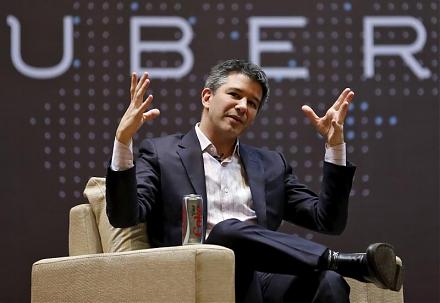
Uber's autonomous car causes the first known pedestrian fatality from a driverless vehicle and thus sets off the alarm bell for artificial intelligence.
2023-03-28 11:30:00 Tuesday ET
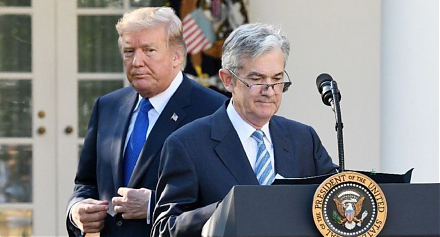
The Federal Reserve System conducts monetary policy decisions, interest rate adjustments, and inter-bank payment operations. Peter Conti-Brown (2017)
2018-07-15 11:35:00 Sunday ET
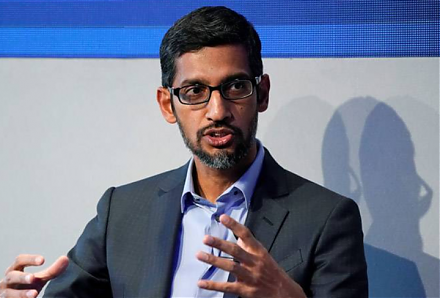
Facebook, Google, and Twitter attend a U.S. House testimony on whether these social media titans filter web content for political reasons. These network pla
2018-05-06 07:30:00 Sunday ET
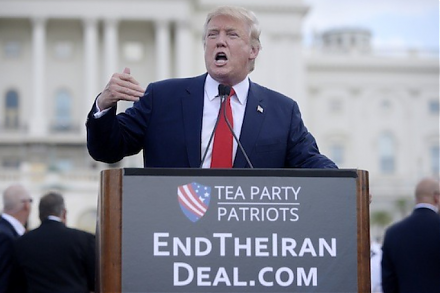
President Trump withdraws America from the Iran nuclear agreement and revives economic sanctions on Iran for better negotiations as western allies Britain,
2018-05-07 07:32:00 Monday ET
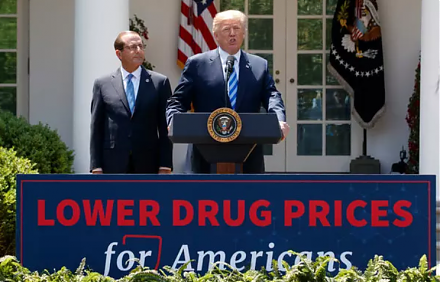
President Trump seeks to honor his campaign promise of lower U.S. medical costs by forcing higher big-pharma prices in foreign countries such as Canada, Bri
2018-03-23 08:26:00 Friday ET
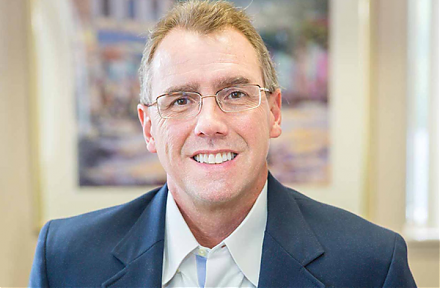
Personal finance and investment author Thomas Corley studies and shares the rich habits of self-made millionaires. Corley has spent 5 years studying the dai